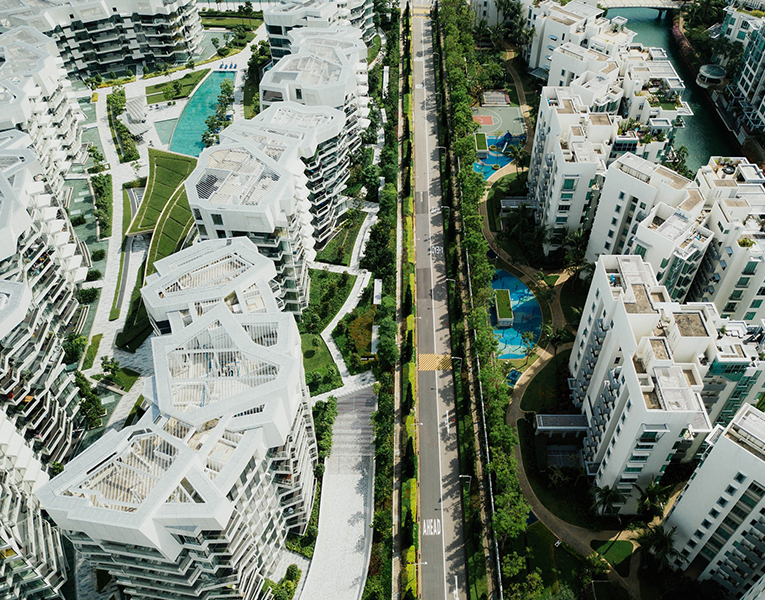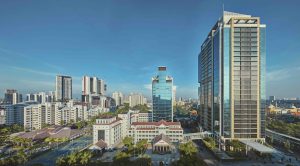10 Things To Think About When Buying A High Rise Property
Share story

Many purchasers are drawn to high-rises because of their modern architecture, breathtaking views of the metropolis, and even rooftop pools for luxury properties.
However, purchasing a high-rise property differs from purchasing a landed property. Before making a buying decision, it is beneficial to be aware of what will and will not add value to your investment. Do not become emotionally attached to a gorgeous view at the expense of quality. In the end, it will just not pay off.
Here are ten factors to consider before purchasing a high-rise condominium:
- Location
When looking for a high-rise home, search for buildings in emerging areas rather than locations that may improve in the future. It is also a good idea to research nearby high-rise properties and compare them to your needs and preferences. For example, would you like to live near a mall for easy shopping and dining, or would you prefer to live closer to work to avoid traffic? Or are neighboring schools or public transportation more important factors in your property selection?
- Land Status
Another factor to consider is the land status of the high-rise property on which you wish to acquire a unit. The land can be classified as either residential or commercial. If the land status is commercial, the assessment and utility bills will be charged at the commercial rate, which is higher than the residential rate.
- Parking
Another key thing to consider when selecting your high-rise property is whether the parking facilities, such as elevated or underground parking, will fit your needs, as well as where the guests will park.
In addition, check the location of the available designated parking spaces. Do you require a space near the elevator? For example, if you are an elderly buyer or have a family with small children, you might need a spot near the elevator.
If you own multiple sets of cars, you can either choose to rent or buy additional units from the management.

- Facilities
Aside from location, amenities tend to entice buyers to high-rise residential units, as landed residences typically do not include amenities such as a swimming pool, gym, or community hall.
However, it is advisable to evaluate the quality of these facilities if you are purchasing a sub-sale property. Are they in good condition? You do not want to be paying maintenance fees for faulty gym equipment.
- Insurance coverage
High-rise buildings are normally insured by the management, but it does not cover insurance for personal belongings, so you will have to obtain this on your own. Inquire about what would happen if your neighbour had a fire and it impacted your unit, or if you accidentally flooded your bathroom and needed repairs.
The type of insurance and premiums will vary depending on the type of building, so understanding what the coverage includes and excludes is critical. Check with the management and the insurer about this.
- View
If you are buying to invest, acquiring a high-rise unit with a good view can be beneficial. A good view is worth a few extra ringgit, because who does not want to look out their balcony at KLCC, for example? Higher floors usually offer fabulous views compared to lower units. Another advantage of living on the top floor is better lighting and ventilation.
- Security
When looking for a property, you should consider whether the environment is safe for you and your family. Is the building well guarded, and do guards patrol the area? If you frequently hear about break-ins, you might want to look elsewhere.
Finding out more information on the security of the property will at least give you peace of mind when you are away from home or traveling.
- Density
A higher-density residential building will result in it being a little overcrowded. Hence, you will experience longer lift waits, which may make living there unpleasant for you. The number of lifts available for each building can also make a big difference.
Exclusivity can come at a higher cost, but sometimes it may be money well spent. High-density properties can also result in noise disturbances.
- Maintenance fees
A monthly maintenance and sinking fund fee is used to pay for maintenance, repairs, and upgrades in high-rise properties. There is also the possibility for an increment in the fees as time passes.
The monthly minimum chargeable cost is RM0.25 per square foot. This pricing will vary depending on the management and the facilities provided. So, for a 1,200-square-foot flat, your monthly maintenance payments will usually be around RM300.
- Homeowners Association (HOA)
Before buying a unit, it is important to understand what plans the association has for the building, as well as other rules that will have an impact on how you live in your home and any changes you want to make. It is good practice to find out what on-going improvements might be added to the list of future upgrades. For example, EV charging stations as these could all have an effect on your living there.


